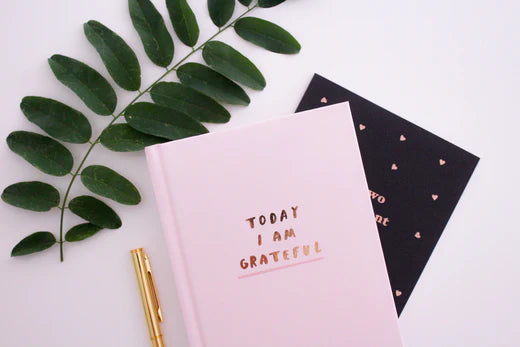
Something to be Grateful for
Share

Did you know that the majority of us will have a sleep disorder at some point in our lives? Some people might suffer from sleep apnoea during a pregnancy, or jetlag while traveling, or, (the one that rears its head all too often during silly season) insomnia due to stress.
The to-do list has expanded past anything achievable in this lifetime, let alone by the end of the week; the hours meant for snoozing suddenly get gobbled up by staring at the wall and agonizing over everything left to prep, wrap, write, cook , buy, say, etc. Does this sound familiar? For many of us it’s an all too common affliction this time of year.
Well, despite my frantic pace, insomnia caught up with me last week! So, this week, I’ve enlisted the help of some ‘trusted and true’ techniques to drift me right on back to slumberland.
There are lots of tips for how to find your way back to sleep when the sheep you’re counting get too vocal and demanding, but today I wanted to share my ‘go-to’ technique for calming the mind - gratitude journaling.
Now, stay with me! I know you’ve already started making mental objections about why this won’t work for you: “I’m not a good writer”; I have nothing to say”; “I’ll feel stupid”; “Every scrap of paper in my house is reserved for list-making”! But like Sam I Am before me, I say: “Try it, try it, you will see”!
So, what is a gratitude journal and why do we use them for sleep?
Gratitude journals are a place that you can document the things you’re grateful for in your life - every day. This doesn’t mean that you have to pretend everything in your life is great: we aren’t ignoring the realities of life. It’s more about taking the time to focus on the positive things in your life and counting your blessings, instead of focussing on your problems.
Studies on acknowledging gratitude have shown marked improvement in overall well-being - reducing cardiac stress, improving our mental health and connectedness. But when added to a bedtime routine, this has another interesting effect.
As you would imagine, gratitude is related to having more positive thoughts and fewer negative ones - and this, in turn, has been associated with dozing off faster and sleeping longer and better. One study showed that gratitude journaling before bed resulted in an average increase of 30 minutes more quality sleep per night! On those nights when you’re searching your brain for the magic ‘sleep switch’ - this is quite literally the answer to your prayers.
When to journal?
When we’re using gratitude journals to aid sleep, it’s a good idea to include this in your pre-sleep routine - 1 hour before bed. If you don’t already have a routine - firstly, welcome to the pod 😊, and secondly - I envy you the joy of experimentation to find your special combo. Here are some tips to get started.
This is, hands down, my favourite hour of the day. Adding in some brief ‘gratitude time’ into that hour can help you set your intentions, and allow you to enjoy the rest of your wind-down time. I usually start my time with a quick brain-dump of everything I’m thinking about, stressed about, have to do, etc (no more than 5 minutes), and then transition into 10 minutes of gratitude journaling.
Set yourself up for success by adding it to your calendar and setting an alert so it doesn’t get skipped.
How do I get started?
First up, the fun part - picking a journal! Or is just me who has an obsession with office supplies? I‘m a big fan of physical books, so that after I finish my time I can physically shut the cover on it, and be done for the night. But if you’re a fan of digital, there are some freebie apps that you can get for jotting down your thoughts.
(*Quick reminder, if your preference is digital, make sure you’re using some blue light glasses so you don’t undo your good work by staring at a screen!)
Now, you don’t need to wax lyrically in an award-winning sonnet - just a happy note will do! You can write, doodle, scrap-book - whatever medium makes you happy. The important thing is to be detailed.
Pick 3-5 things each day and expand on them. For example: instead of simply, “I’m thankful for my friends”, consider expanding on that thought. When was the last time you saw or talked to your friend? Where were you? What did you talk about? How did you feel when you got the hello hug or the SMS? As you write about the details of a positive experience, you are reliving it and can re-experience the same mental and physical response to the memory. That boost of happiness before bed can go a long way to helping you calm your mind and drift off.
If your muse is evading you, start with simple. What happened today that didn’t suck? A smile from a stranger? A shared joke at work? Or it could simply be something in your surrounds. “I am thankful for my bedroom”: a quiet, relaxed, safe, sanctuary where I check out, breathe deeply, and let my shoulders gain some distance from my ears. You might be thankful for hot water for your shower, your morning coffee, sunshine for your ride to work, etc. And then pile on the ‘why’ questions so that you can relive the joys of that experience.
While gratitude journaling can be a great addition to your routine at any time of your day and throughout the year - making sure to lock in that time during silly season could be this year’s secret to success for a healthy, happy, holiday season.
